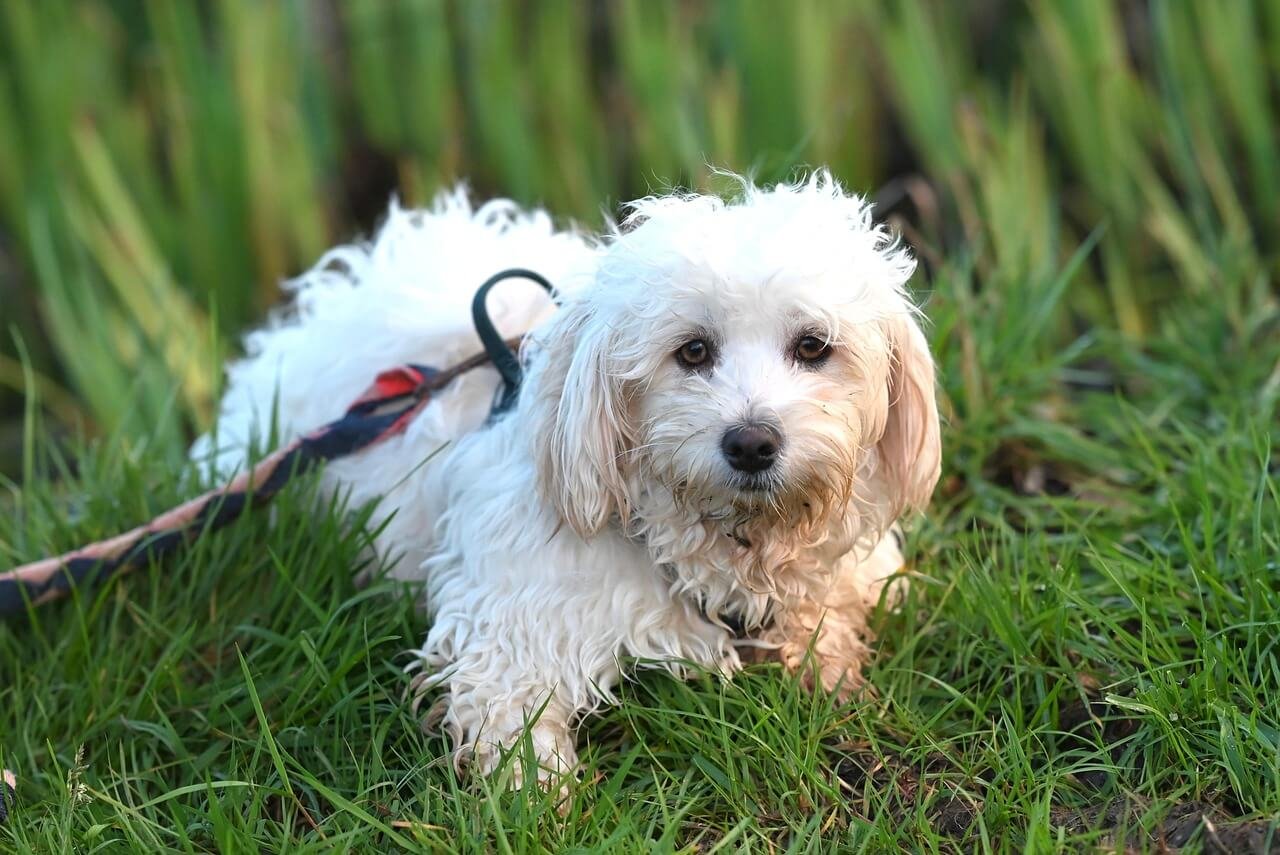Dog Dry Skin Treatment: How to Keep Your Pup’s Coat Healthy and Comfortable
Dry skin in dogs is more than just an annoyance—it can lead to discomfort, itching, and even infections if left untreated. Whether your dog is scratching excessively, shedding more than usual, or showing flaky patches on their coat, it’s important to address the issue promptly. Fortunately, there are many effective ways to treat and prevent dry skin in dogs, ensuring they stay happy, healthy, and itch-free. In this blog post, we’ll explore the causes of dry skin, practical treatment options, and tips for maintaining your dog’s skin health long-term. By the end, you’ll have all the tools you need to give your furry friend the care they deserve.
Common Causes of Dry Skin in Dogs
Understanding what causes dry skin in dogs is the first step toward effective treatment. Several factors can contribute to this uncomfortable condition, ranging from environmental triggers to dietary deficiencies. Here are some common culprits:
Harsh Weather Conditions:
Cold winters and dry air can strip moisture from your dog’s skin, leaving it irritated and flaky.Allergies:
Environmental allergens like pollen or food sensitivities can lead to dry, itchy skin.Improper Bathing Habits:
Over-bathing or using harsh shampoos can disrupt the natural oils on your dog’s skin.Poor Nutrition:
A diet lacking essential fatty acids, vitamins, or minerals can result in dull, dry skin and coat.Underlying Health Issues:
Conditions like hypothyroidism or parasites such as fleas can also cause or exacerbate dry skin.
Identifying the root cause of your dog’s dry skin is key to finding the right treatment and preventing future flare-ups.
Effective Treatments for Dog Dry Skin
Once you’ve identified the cause of your dog’s dry skin, it’s time to take action. Here are some proven treatments to soothe irritation and restore your dog’s skin health:
Moisturizing Shampoos:
Use a gentle, hydrating shampoo specifically formulated for dogs to cleanse without stripping natural oils.Omega-3 Supplements:
Adding fish oil or other omega-3 supplements to your dog’s diet can improve skin hydration and reduce inflammation.Humidifiers:
Running a humidifier in your home during dry months can help maintain optimal humidity levels for your dog’s skin.Regular Brushing:
Grooming your dog regularly removes dead skin and distributes natural oils throughout their coat.Veterinary Prescriptions:
For severe cases, your vet may recommend medicated shampoos, topical treatments, or oral medications.
With consistent care and the right approach, your dog’s skin can return to its healthy, hydrated state.
Check this guide 👉5 Best Dog Lotions for Dry Skin to Restore Softness Instantly!
Check this guide 👉Black Crusty Scab on Dog: Best 7 Expert Tips!

Preventive Measures | Benefits |
|---|---|
Use lukewarm water for baths | Prevents stripping natural skin oils |
Feed a balanced, nutrient-rich diet | Supports overall skin and coat health |
Avoid over-bathing | Maintains skin’s natural moisture barrier |
Check for fleas and ticks | Reduces risk of parasite-related skin issues |
Provide fresh, clean water | Keeps your dog hydrated and supports skin health |
Natural Remedies for Dog Dry Skin
If you prefer a more holistic approach, natural remedies can be a great way to soothe your dog’s dry skin. These solutions are gentle and often easy to incorporate into your routine.
Coconut Oil:
Applying a small amount of coconut oil to dry patches can moisturize and reduce irritation.Aloe Vera Gel:
Pure aloe vera gel (free of additives) can calm inflamed skin and promote healing.Oatmeal Baths:
Oatmeal-based shampoos or DIY oatmeal soaks can relieve itching and soften your dog’s skin.Apple Cider Vinegar Rinse:
Diluted apple cider vinegar can balance your dog’s skin pH and combat bacterial infections.Herbal Teas:
Chamomile or green tea rinses can soothe irritated skin and provide anti-inflammatory benefits.
While natural remedies can be effective, always consult your vet before trying new treatments, especially for dogs with sensitive skin.
Tips for Maintaining Long-Term Skin Health
Treating dry skin is just the beginning—maintaining your dog’s skin health requires ongoing effort. Here are some tips to keep your pup’s coat shiny and their skin hydrated year-round:
Schedule Regular Vet Check-Ups:
Routine exams can help catch underlying health issues that may affect your dog’s skin.Monitor Diet Changes:
Switching to high-quality dog food or adding supplements can make a noticeable difference.Limit Exposure to Irritants:
Reduce contact with chemicals, perfumes, or allergens that could irritate your dog’s skin.Keep Their Environment Clean:
Regularly wash bedding and vacuum areas where your dog spends time to minimize allergens.Stay Consistent with Grooming:
Establish a grooming routine to prevent mats, remove debris, and distribute skin oils.
By incorporating these habits into your dog’s care routine, you’ll help them maintain healthy skin and a lustrous coat.
Signs Your Dog May Have Dry Skin
Dry skin in dogs isn’t always obvious, but there are telltale signs that can help you identify the issue early. Recognizing these symptoms ensures you can address the problem before it worsens.
Excessive Scratching:
If your dog is constantly scratching or biting at their skin, it could indicate irritation from dryness.Flaky or Dandruff-Like Skin:
Visible flakes on your dog’s coat or bedding are a clear sign of dry skin.Red or Inflamed Patches:
Redness or swelling can occur when dry skin becomes irritated or infected.Hair Loss:
Excessive shedding or bald spots may result from persistent scratching or underlying skin issues.Odor from the Coat:
A musty or unpleasant smell can indicate dry skin combined with bacterial overgrowth.
If you notice any of these signs, it’s time to take action to soothe your dog’s discomfort and restore their skin health.
Foods That Promote Healthy Skin and Coat
Nutrition plays a crucial role in maintaining your dog’s skin and coat health. Incorporating specific foods into their diet can provide the nutrients needed for hydration and repair.
Fatty Fish (e.g., Salmon):
Rich in omega-3 fatty acids, fish helps reduce inflammation and moisturize the skin.Sweet Potatoes:
Packed with vitamins A and E, sweet potatoes support skin repair and overall health.Pumpkin:
High in fiber and moisture, pumpkin aids digestion and promotes healthy skin from within.Eggs:
Eggs are an excellent source of protein and biotin, which strengthen the coat and reduce dryness.Blueberries:
These antioxidant-rich berries protect the skin from oxidative stress and promote healing.
By including these nutrient-dense foods in your dog’s diet, you can naturally enhance their skin and coat quality over time.
Common Mistakes to Avoid When Treating Dry Skin
While treating dry skin, it’s easy to make mistakes that could prolong the issue or even worsen it. Being aware of these pitfalls can help you avoid them and ensure effective treatment.
Using Human Products:
Shampoos, lotions, or conditioners made for humans can disrupt your dog’s natural skin pH balance.Over-Bathing:
Too many baths strip essential oils from your dog’s skin, leading to increased dryness.Ignoring Underlying Conditions:
Failing to address root causes like allergies or parasites can result in recurring dry skin issues.Skipping Hydration:
Not providing enough fresh water can exacerbate dry skin, as hydration starts from within.Neglecting Environmental Factors:
Ignoring factors like cold weather or indoor heating can prevent your dog’s skin from recovering fully.
Avoiding these common mistakes will help you create a more effective and sustainable treatment plan for your dog’s dry skin.
Frequently Asked Questions About Dog Dry Skin Treatment
How often should I bathe my dog?
Most dogs only need a bath every 4-6 weeks, but this varies based on breed and activity level.
Can human lotion be used on dogs?
No, human lotions can irritate a dog’s skin and should be avoided.
Are omega-3 supplements safe for dogs?
Yes, omega-3s are safe and beneficial for most dogs when given in appropriate doses.
What should I do if my dog’s dry skin doesn’t improve?
Consult your veterinarian to rule out underlying conditions or infections.
How can I tell if my dog has allergies?
Signs include excessive scratching, redness, swelling, or recurrent ear infections.
Final Thoughts: Prioritizing Your Dog’s Skin Health
Dry skin in dogs is a common issue, but with the right care and attention, it’s entirely manageable. From identifying the root cause to implementing effective treatments and preventive measures, you have the power to ensure your dog stays comfortable and itch-free. Remember, consistency is key—whether it’s through proper grooming, dietary adjustments, or regular vet visits, small efforts can make a big difference. By staying proactive and attentive to your dog’s needs, you’ll not only improve their skin health but also strengthen the bond you share. After all, a happy, healthy pup is a joy to have by your side!
Cat Anaphylactic Shock Treatment Costs: Best 7 Expert Tips! – Learn about costs, treatments, and financial aid options to save your cat’s life.
Exocrine Pancreatic Insufficiency in Cats: Best 7 Tips! – Learn to spot symptoms, manage EPI effectively, and improve your cat’s quality of life with expert advice.
Cost of Dog Anaphylactic Shock Treatment: Best 7 Tips! – Learn about emergency costs, financial planning, and ways to manage expenses for your dog’s care.
Exocrine Pancreatic Insufficiency in Dogs: Best 7 Tips! – Learn to spot symptoms, manage EPI effectively, and improve your dog’s quality of life with expert guidance.





